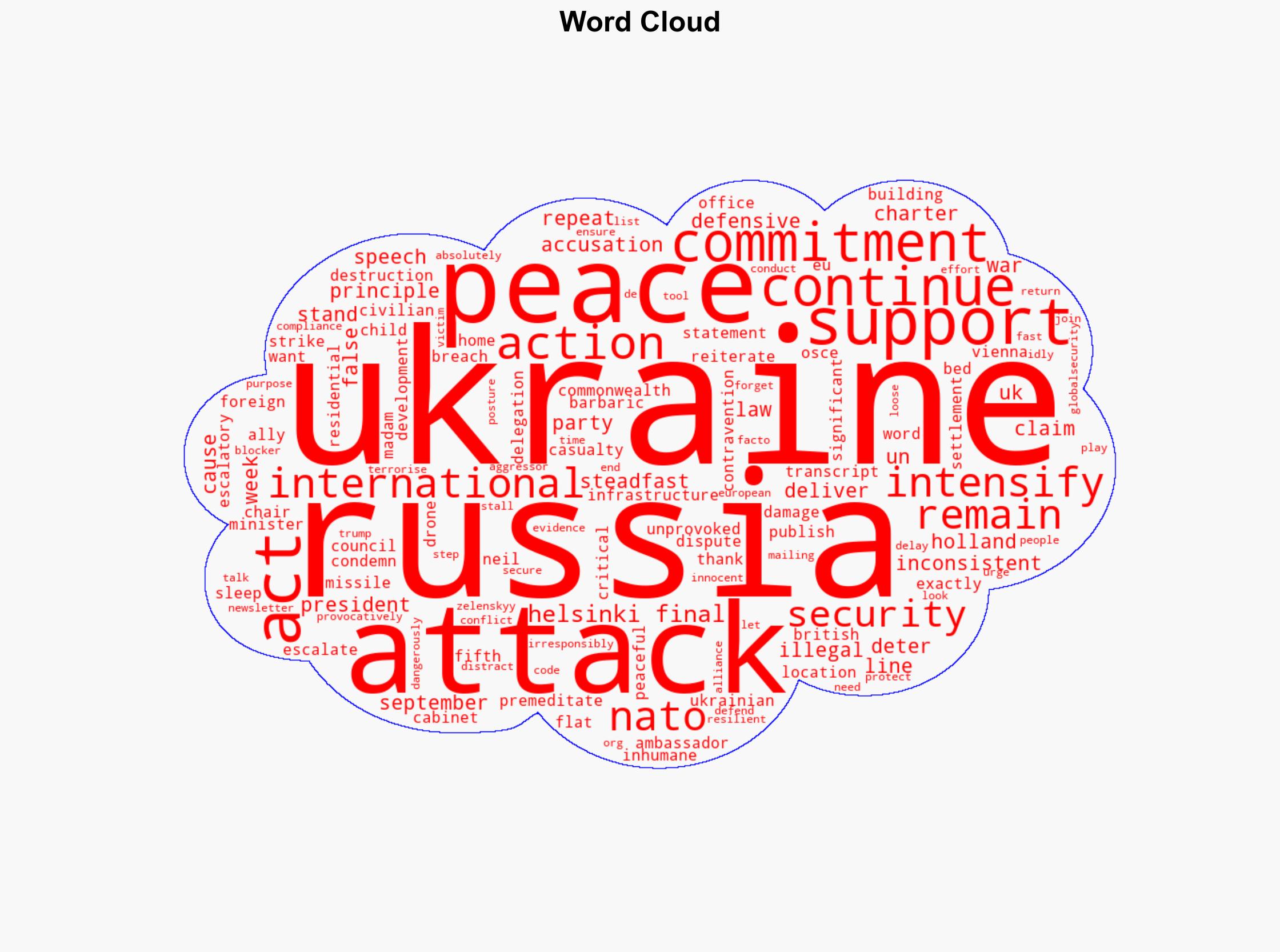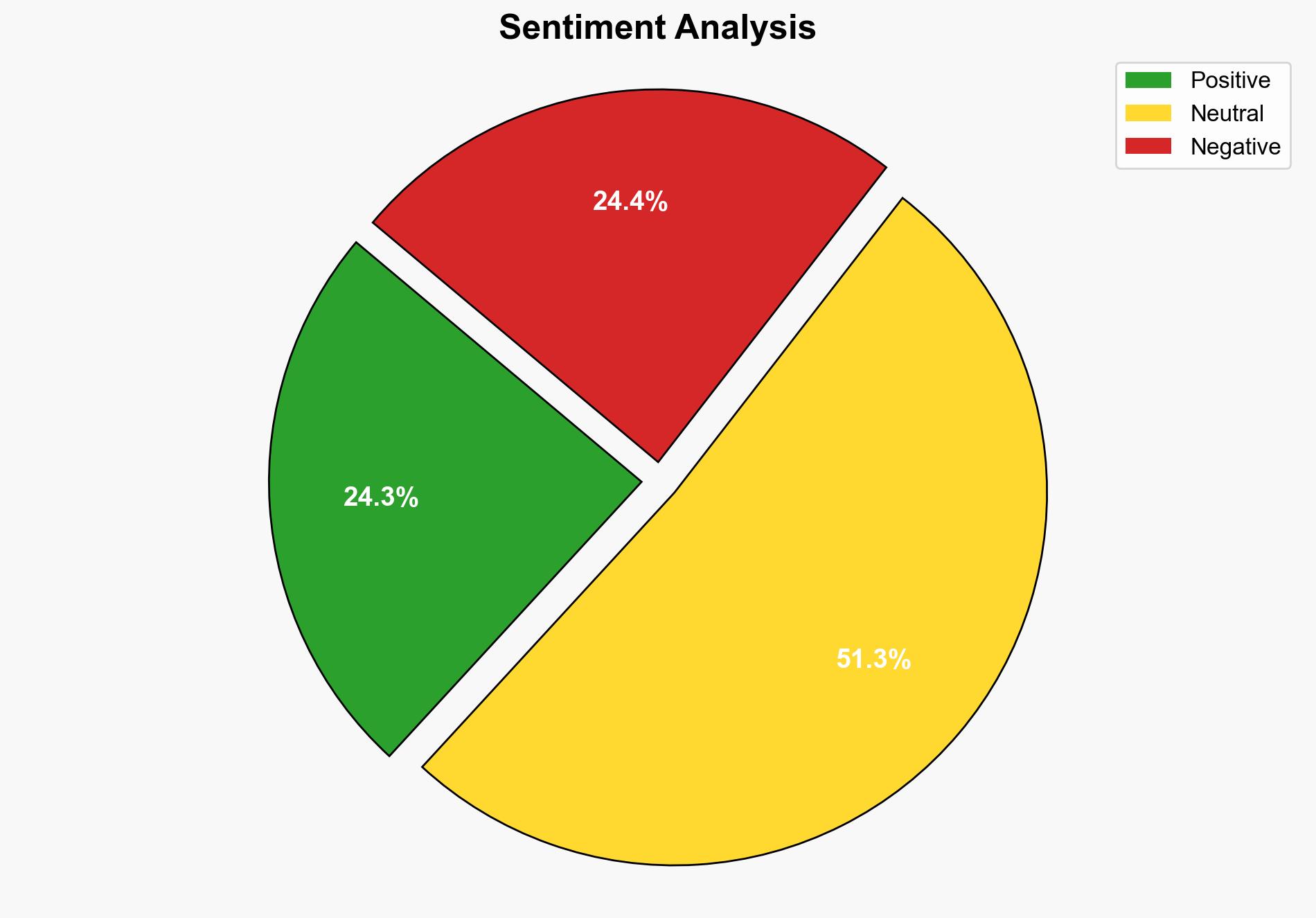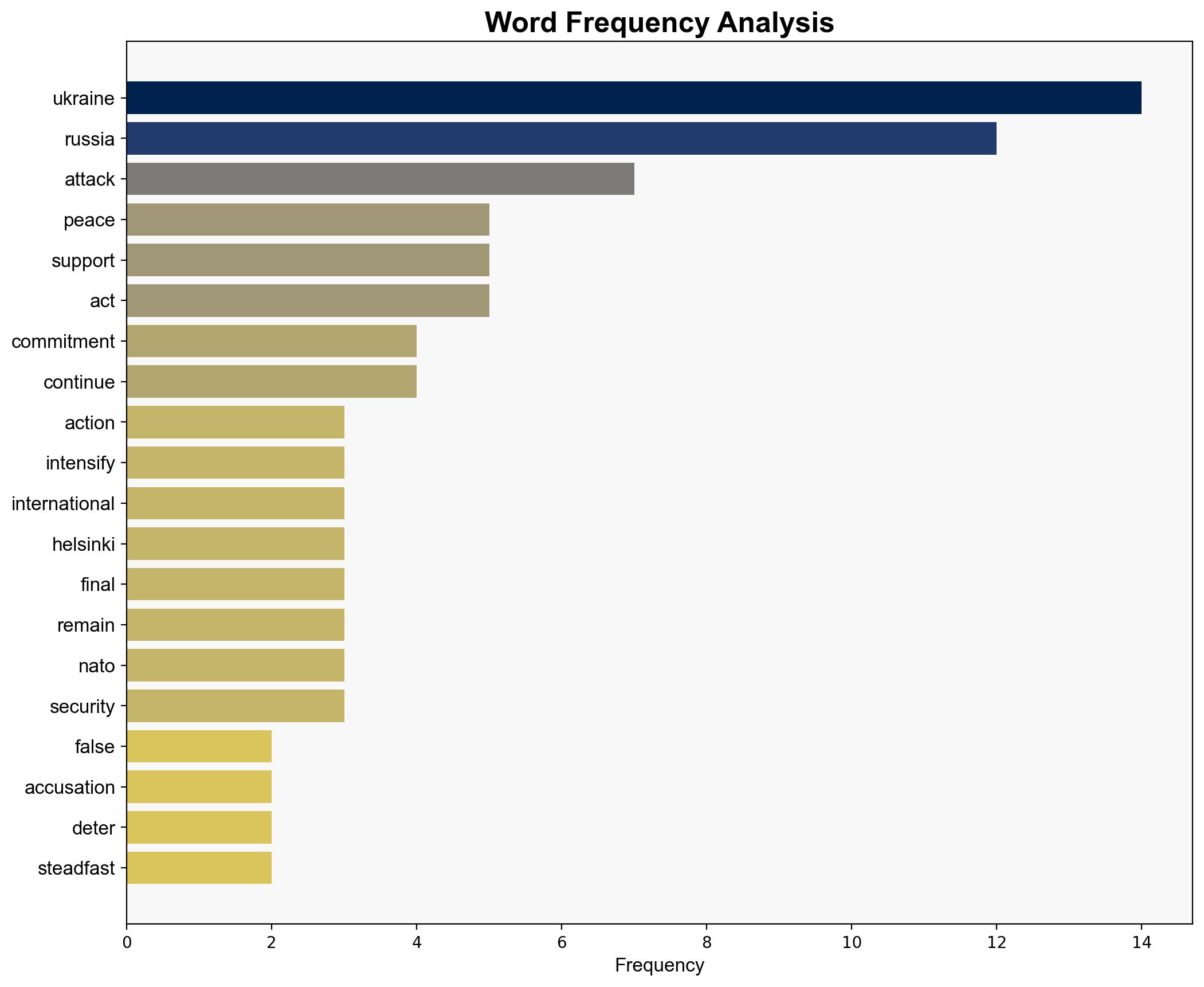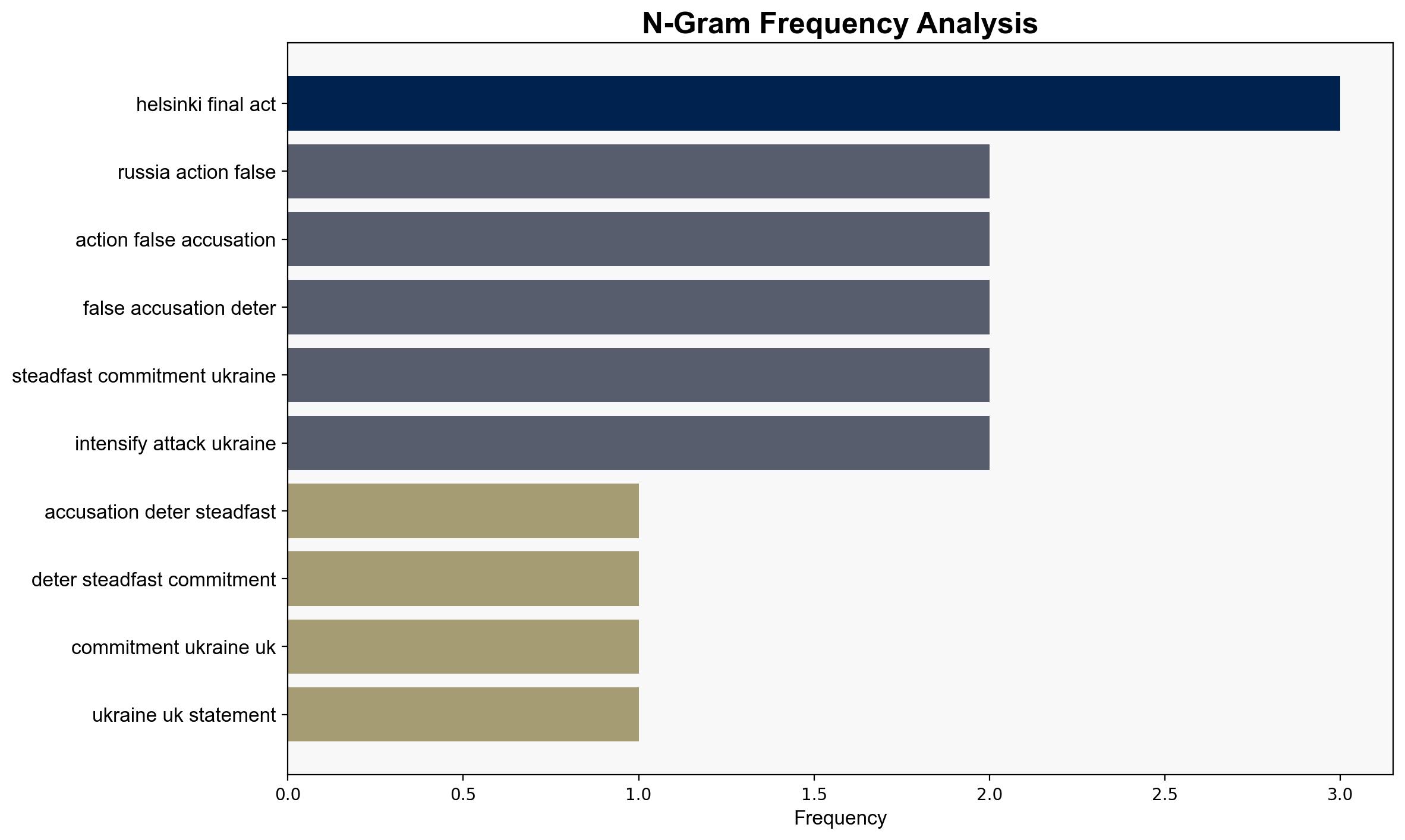Russia’s actions and false accusations will not deter our steadfast commitment to Ukraine UK statement to the OSCE – Globalsecurity.org
Published on: 2025-09-29
Intelligence Report: Russia’s actions and false accusations will not deter our steadfast commitment to Ukraine UK statement to the OSCE – Globalsecurity.org
1. BLUF (Bottom Line Up Front)
The analysis suggests that Russia’s intensified military actions and false accusations are strategic maneuvers to undermine Western support for Ukraine. The most supported hypothesis is that Russia aims to create a narrative of NATO aggression to justify its actions and weaken international resolve. Confidence level: Moderate. Recommended action: Strengthen diplomatic efforts and reinforce NATO’s defensive posture to counter misinformation and support Ukraine’s resilience.
2. Competing Hypotheses
1. **Hypothesis A**: Russia’s actions and accusations are primarily aimed at justifying its military operations in Ukraine by portraying NATO as an aggressor, thereby attempting to fracture Western unity and support for Ukraine.
2. **Hypothesis B**: Russia’s actions are a direct response to perceived threats from NATO’s support for Ukraine, and the accusations are genuine beliefs rather than strategic misinformation.
Using the Analysis of Competing Hypotheses (ACH) 2.0, Hypothesis A is better supported due to the pattern of Russia’s historical use of misinformation to achieve strategic goals and the lack of concrete evidence supporting NATO’s aggressive posture.
3. Key Assumptions and Red Flags
– **Assumptions**: Hypothesis A assumes Russia is deliberately using misinformation as a strategic tool. Hypothesis B assumes Russia perceives a genuine threat from NATO.
– **Red Flags**: The consistency of Russia’s narrative with past disinformation campaigns suggests potential deception. The absence of evidence for NATO aggression is a critical gap.
– **Blind Spots**: Potential underestimation of internal Russian political dynamics influencing external aggression.
4. Implications and Strategic Risks
– **Geopolitical**: Continued Russian aggression could destabilize the region, prompting broader European security concerns.
– **Economic**: Prolonged conflict may disrupt global markets, particularly in energy and commodities.
– **Cyber**: Increased risk of cyber attacks targeting critical infrastructure in Ukraine and supporting nations.
– **Psychological**: Russia’s narrative may influence public opinion in NATO countries, potentially weakening political support for Ukraine.
5. Recommendations and Outlook
- Enhance intelligence-sharing among NATO allies to counter misinformation and reinforce collective defense narratives.
- Increase support for Ukraine in terms of military aid and humanitarian assistance to bolster resilience.
- Scenario Projections:
- **Best Case**: Diplomatic efforts lead to a de-escalation and renewed peace talks.
- **Worst Case**: Escalation leads to broader regional conflict involving NATO forces.
- **Most Likely**: Continued low-intensity conflict with periodic escalations and ongoing diplomatic stalemate.
6. Key Individuals and Entities
– Neil Holland
– President Zelenskyy
– President Trump
7. Thematic Tags
national security threats, cybersecurity, counter-terrorism, regional focus




